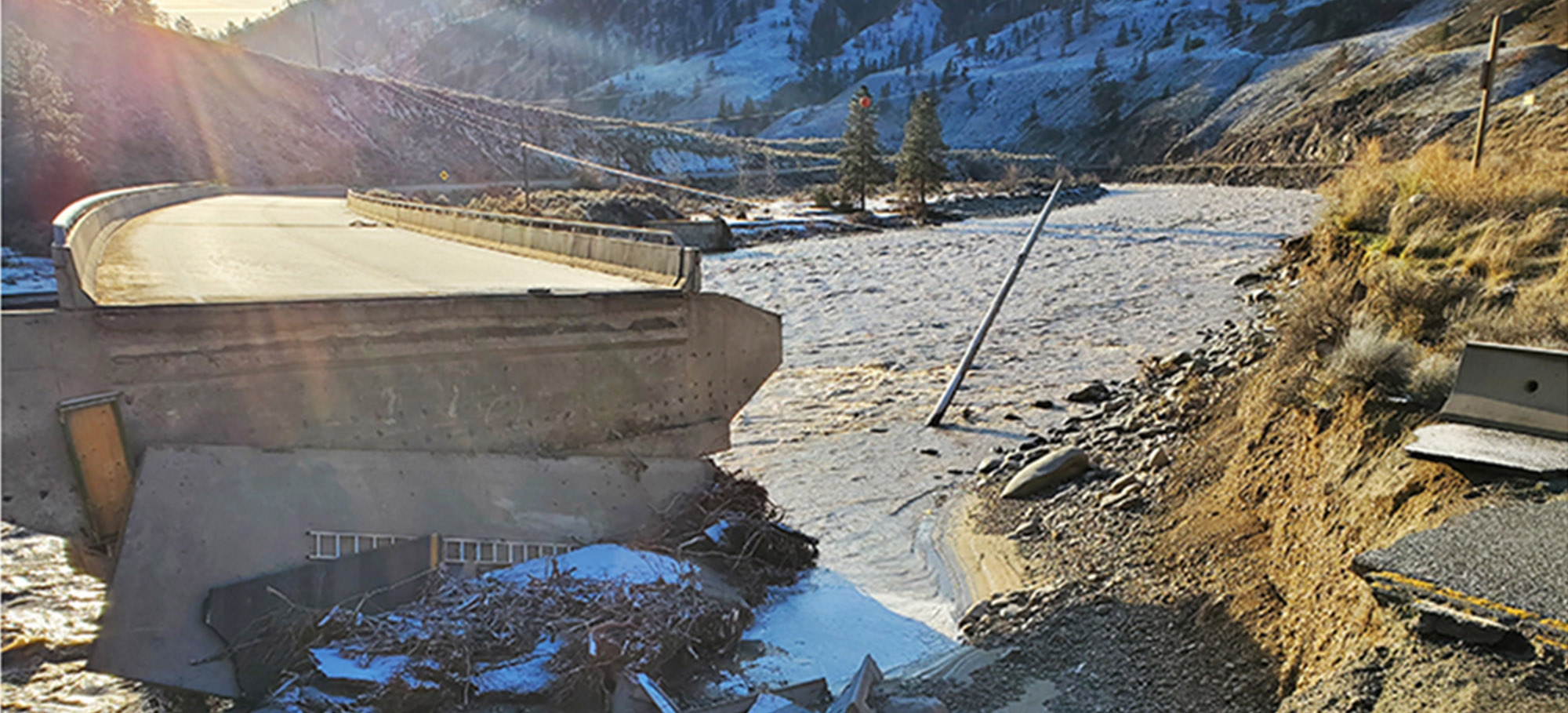Originally published in: Journal of Commerce
Nemy Banthia, a professor of civil engineering at the University of British Columbia (UBC), and his doctoral student Mohammed Farooq have developed a sensor network that can detect the early stages of mudslides and bridge foundation failures that are caused by flooding.
What happens when rushing water assaults a bridge is not an academic question, as British Columbians found out recently.
Torrential rain in November 2021 and the resulting floods damaged many bridges and caused one, at Merritt in B.C.’s interior to collapse.
“Flooding causes foundation loss due to persistent, large-volume and high-velocity flows of water that bridge foundations are not designed for,” said Banthia. “Once the foundation has been lost, collapse of the bridge is inevitable.”
This is how the UBC-developed system works.
An array of dielectric sensor, also called capacitance sensors, are placed at the foundation of bridges where the impact of flooding is most severe.
The sensors monitor the underwater condition of the foundations by detecting changes in their electromagnetic properties.
They also provide early indication of any erosion of stable, compacted soil around the foundations and the build-up of any loose, unstable soil that has been caused by flooding.
The data captured by the sensors is transmitted wirelessly by low-power, low-cost microcontrollers to the cloud for analysis and visualization.
